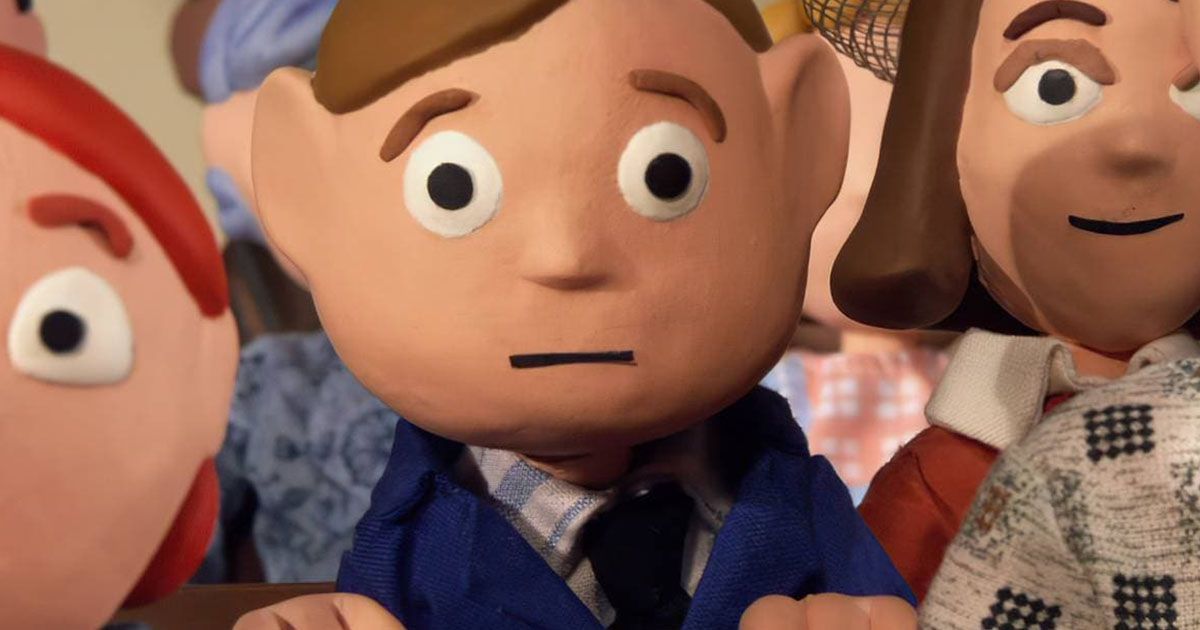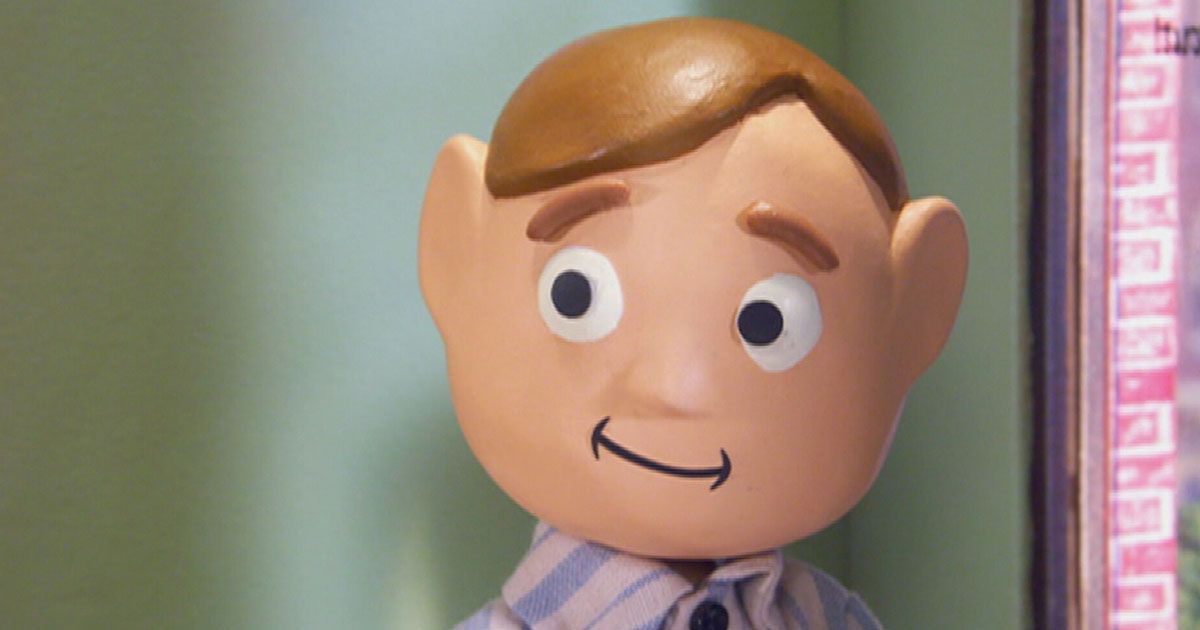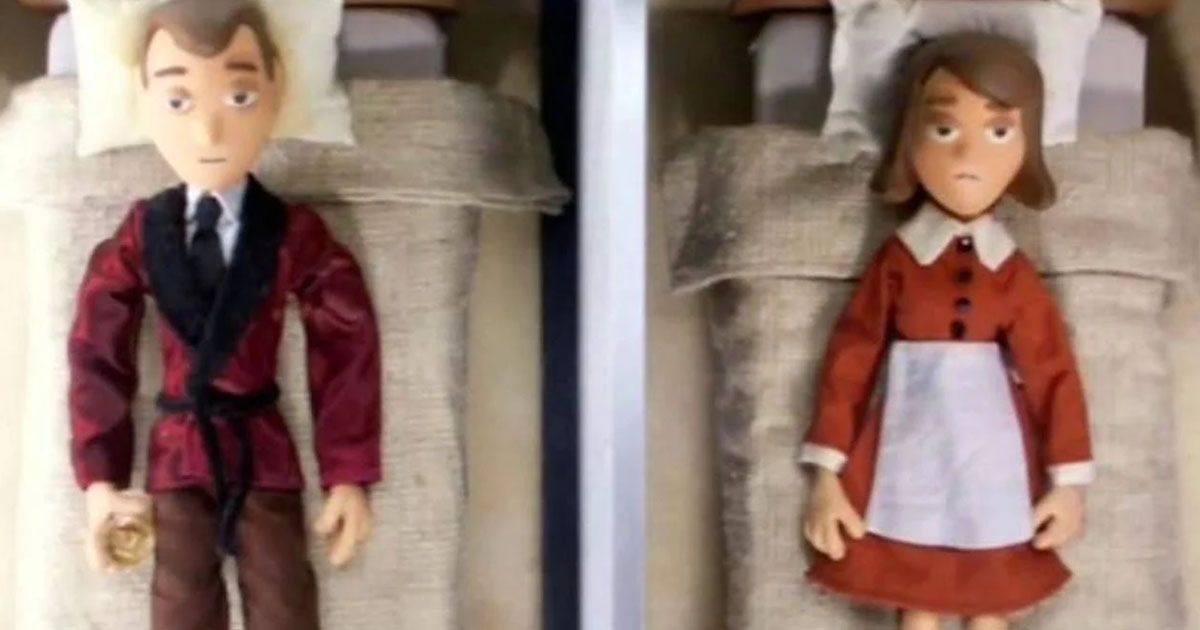Moral Orel is unlike any stop-motion animated series that's come before it. This comedy-drama, which ran on Adult Swim from 2005 to 2008, paved the way for Anomalisa, BoJack Horseman, Rick and Morty, and other sadcoms of today. Dino Stamatopoulos, Moral Orel’s creator, began to talk about deep, important, and painful topics that used to be rarely raised in animation; family dysfunction, alcoholism, depression, and religion are just some of them.
In the first season, Moral Orel was a funny and often predictable satire of Christian fundamentalism, but in the second and third seasons, the series took a dark turn. After such disturbing and depressive episodes like Alone, Adult Swim decided that Moral Orel should be canceled. But even this canceled, shortened version of Moral Orel is a masterpiece of adult animation and simply one of the most heartbreaking cartoons of all time.
Orel, The Boy Who's Trying To Be Good
The series centers on 12-year-old Orel Puppington, a naive boy who wants to be a good person. Orel likes to go to church, because there he can find out the answers to his questions. He also listens to all the advice of his parents, Clay and Bloberta, who have a whole list of commandments. Orel always has kind intentions and wants everyone in his town, Moralton, to be happy, but often messes things up and grossly misinterprets Christian moral codes.
For example, when the boy learns that life is God's greatest gift, he decides to dig up the dead in the town's cemetery; when Reverend Rod Putty talks about helping the poor, Orel helps a crack dealer and buys drugs from him; when Orel’s mother says that God hates waste, the boy starts drinking his own urine. All these episodes seems funny, but after realizing that Orel doesn't have a lot of proper guidance, support, and love in his life, Moral Orel becomes really sad.
The Moral Failure of Orel's Parents
When Orel is doing something wrong, his father tell him that they should meet in a study. In the study, Clay gives his son bad advice which says more about the ideology of his parents' generation and his father's prejudices (for example, "All a woman really needs to be happy is a few little hungry mouth to feed and some dirt to clean up," or "People know who you are by the words you use, not the things you do"). Clay then takes off his belt.
In one of the episodes, Orel honestly told his father, "I am sorry. I goofed up. I was trying to be good, so you could love me more than you do now." His father answered, "I could never love you more. People only have a certain amount of love in them." This may be comic misdirection, but it's largely a tragic pity for a great many reasons, largely because Orel has always wanted to be loved, but his parents couldn't do that.
Orel’s father has an alcohol addiction; he beats Orel, teaches him lessons from the fictional book Fake Facts of Life For Ages 5-15, and feels miserable all the time. Orel’s mother is obsessed with cleaning; she is suffering from depression and loneliness, to the extent that she barely recognizes her own children (taking home a completely different child from the supermarket). In fact, his parents don’t care how their son feels, with their main goal simply looking like a normal Christian family. They suck up to the leader of the church, but the Reverend has a cup with the words "I hate my boss," (comically referring to God), which says a lot about whether he can become a worthy mentor for Orel. Other residents of Moralton also have too many problems of their own. The 12-year-old boy doesn't deserve all the traumas adults put him through.
The Sad Reality of Moral Orel and Dysfunctional Families
Dino Stamatopoulos opened up to Vice about creating the Puppington family, saying, "I wanted this family to be very real. I realize I'm in the minority here, but the first season of The Simpsons was the best season because it was about the most real family on TV. I wanted Moral Orel to have the opposite of the progression that happened in The Simpsons, which went from being a real family into a very cartoony family." When the seasons went on, the Puppington family and other residents of Moralton become all too real. We understand that each character has depressing reasons for their unhappiness; their painful past affects their cynical present. They are all carrying something heavy, and all have a terrible burden.
Moral Orel’s most severe darkness is in the individuality of these characters. The third season of Moral Orel begins with The Mountain Goats' poignant song No Children whose chorus, "And I hope you die, I hope we both die," leaves no hope that Clay and Bloberta’s marriage can be happy. In fact, as we see in the seventh episode of the third season, entitled Help, they never loved each other. "I just don't see him ever being happy. He just stays with Bloberta and they're both miserable with each other. I wish it wasn't so, but...", said Dino Stamatopoulos about Clay, and probably about almost every character of Moral Orel.
It is very difficult to find hope in this animated series. Almost every joke hides a dark truth. Some questions are not easy to answer. Will Orel repeat the mistakes of his parents? Will he keep a good heart and his amazing moral compass in a world of cynicism, cruelty, and sadness?
After the two last episodes of the second season, entitled Nature, in which Orel’s father got drunk again and shot Orel in his leg, it is easy to say that the 12-year-old naive boy will lose his faith, stop wanting to be good, and become the same as his parents. However, with the cancellation known, Moral Orel ends on what little hope the series ever had. It's a beautiful, bittersweet, painful, and incredible finale, and the audience isn't sure if this kind child will survive all the sufferings of his childhood. But let's give him a chance.




